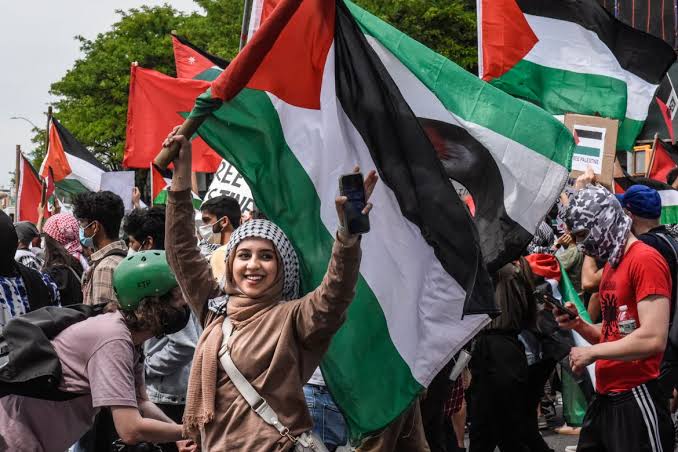In a meeting of the world’s largest economies, the Group of Twenty (G20), the topic of recognizing Palestine as a sovereign state has stirred significant debate among member nations. As of now, nine of the G20 countries have extended recognition to Palestine: Argentina, Brazil, China, India, Indonesia, Russia, Saudi Arabia, South Africa, and Turkey. However, eleven other members, including Australia, Canada, France, Germany, Italy, Japan, South Korea, Mexico, the United Kingdom, and the United States, have refrained from recognizing Palestine.
The question of Palestine’s recognition has become a contentious issue within the G20, sparking intense discussions among member nations. Proponents of recognition argue that acknowledging Palestine as a state is a crucial step toward advancing the longstanding peace process between Israel and Palestine. They contend that international recognition could bolster the legitimacy of the Palestinian government and create a more conducive environment for negotiations.
On the contrary, opponents of recognition express concerns that premature acknowledgment of Palestine might complicate the delicate peace negotiations further. They fear that such a move could potentially undermine the ongoing efforts to establish lasting peace in the region. The recognition of Palestine raises complex questions surrounding historical contexts, current political dynamics, and the intricate web of relationships in the Middle East.
The G20, composed of countries representing more than 80% of global gross domestic product (GDP) and two-thirds of the world’s population, serves as a significant platform for addressing global economic issues and fostering international cooperation. However, the question of recognizing Palestine underscores the challenges inherent in balancing diplomatic considerations with the pursuit of peace and stability in the region.
As the debate continues, member nations grapple with finding a consensus that respects the complexities of the Israeli-Palestinian conflict. The deliberations within the G20 highlight the need for nuanced diplomatic efforts and careful consideration of the multiple factors at play. The resolution of this issue will undoubtedly shape the future of international relations in the Middle East and impact the ongoing pursuit of peace in the region.

International Diplomacy at a Crossroads: G20 Nations Seek Common Ground on Palestine
Amidst the spirited discussions within the G20, diplomats and leaders are engaged in intensive negotiations, attempting to bridge the gap between those advocating for Palestinian recognition and those expressing reservations. The intricate web of historical, political, and humanitarian factors makes this deliberation particularly challenging.
Advocates for Palestinian recognition within the G20 emphasize the urgency of addressing the longstanding conflict. They stress that acknowledging Palestine as a state could serve as a catalyst for renewed peace talks, encouraging both parties to come to the table with a fresh perspective. Many proponents argue that the international community has a moral obligation to support the establishment of a Palestinian state, ensuring self-determination for its people.
On the opposing side, countries cautious about recognition worry about the potential ramifications on the fragile peace process. They emphasize the need for a comprehensive, negotiated settlement between Israel and Palestine, one that addresses the concerns and aspirations of both nations. Skeptics caution that unilateral actions, such as international recognition without mutual agreement, might further escalate tensions and hinder the prospects for a peaceful resolution.
The debate within the G20 reflects broader global sentiments. Various countries and international organizations have differing stances on the recognition of Palestine. The complexities of the issue are underscored by the diverse perspectives, historical grievances, and regional intricacies involved.
In the midst of these discussions, diplomatic channels remain open. Negotiators are exploring compromise solutions that respect the aspirations of the Palestinian people while addressing the concerns of nations wary of unilateral moves. Confidence-building measures, humanitarian aid, and efforts to foster dialogue between Israelis and Palestinians are all part of the multifaceted approach being considered.
As the deliberations continue, the international community watches closely. The outcome of this debate within the G20 could potentially influence the direction of Middle East peace efforts for years to come. While finding common ground proves challenging, the determination of diplomats and leaders to navigate this intricate issue demonstrates the ongoing commitment to a just and lasting resolution for both Israel and Palestine.
In the complex landscape of international diplomacy, the G20 nations stand at a crossroads, facing the delicate task of balancing the pursuit of peace with the complexities of recognition. As they work toward a consensus, the world anticipates a resolution that upholds the principles of justice, equity, and stability in the region. The global community remains hopeful that, through dialogue and understanding, a path toward enduring peace in the Middle East can be forged. Read Something Similar












